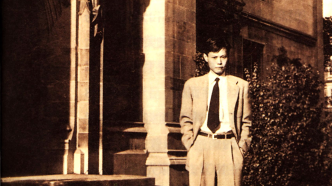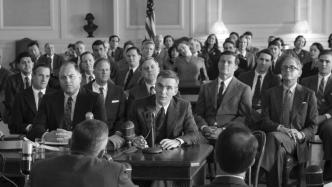
"Oppenheimer" can be regarded as the culmination of Nolan's film creations - both the exploration of the characters' inner feelings and subjective perspectives in "Memento" and "Insomnia", as well as the exploration of the characters' inner feelings and subjective perspectives in "Tenet" and "Dunkirk". His persistence in fragmenting time and space clues is also his specialty in setting up suspense and creating a tense atmosphere in the "Batman" trilogy and "Inception". Although the film is a full 3 hours long (you really need to drink less water before watching the movie), although it is a serious biopic/political thriller (there are not many exciting plots and no big scenes) , but watching it from beginning to end, the audience will not feel dull or bored.
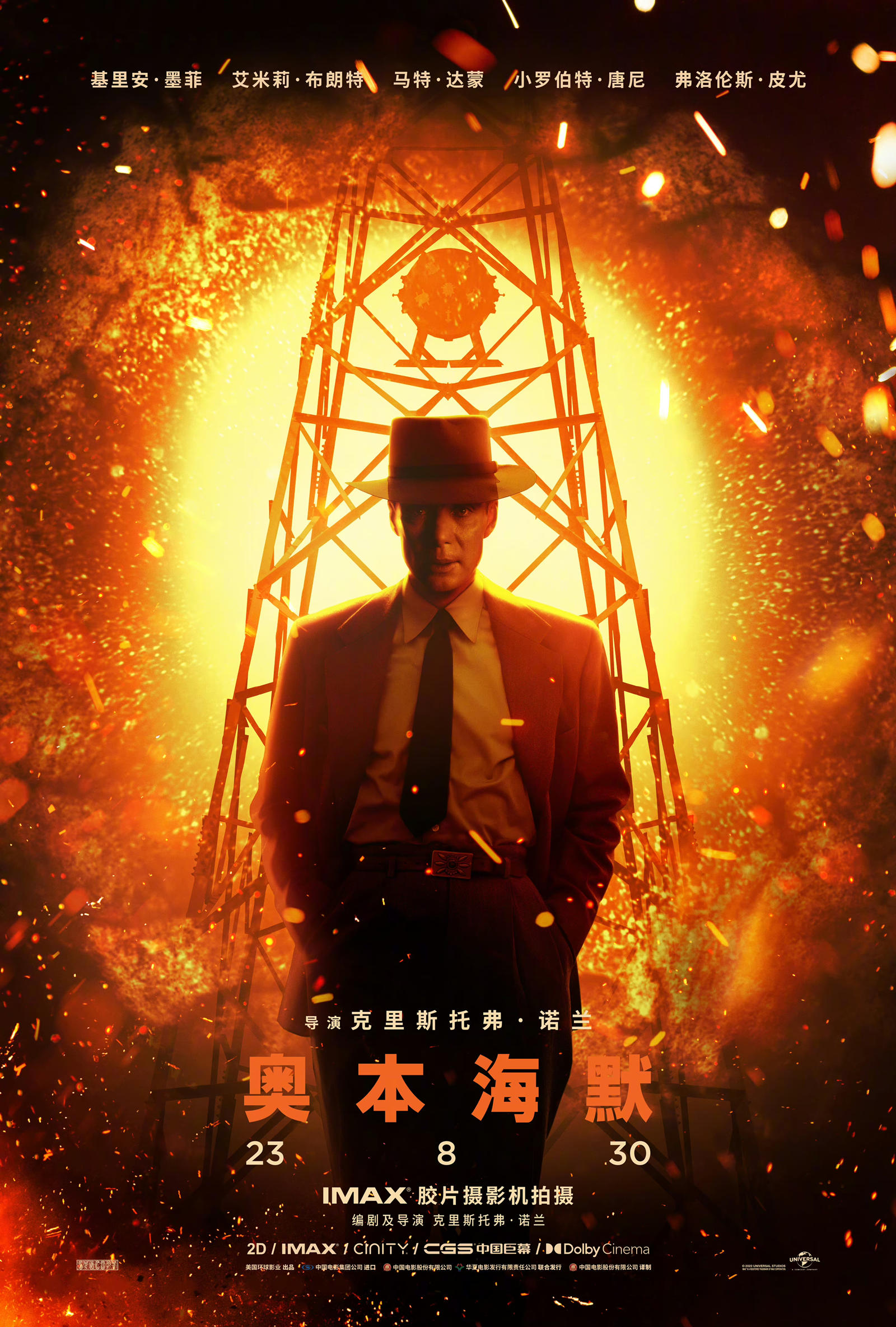
The movie "Oppenheimer" poster
Before watching the movie, a lingering question in my mind is that perhaps most people may not know Oppenheimer’s life story, but when it comes to the significance of the “Father of the Atomic Bomb”, especially Proton, who is mentioned repeatedly in the movie It is not difficult for everyone to understand the Michus complex. These are not new concepts in the first place. In this case, is it necessary to spend three hours introducing such a character?
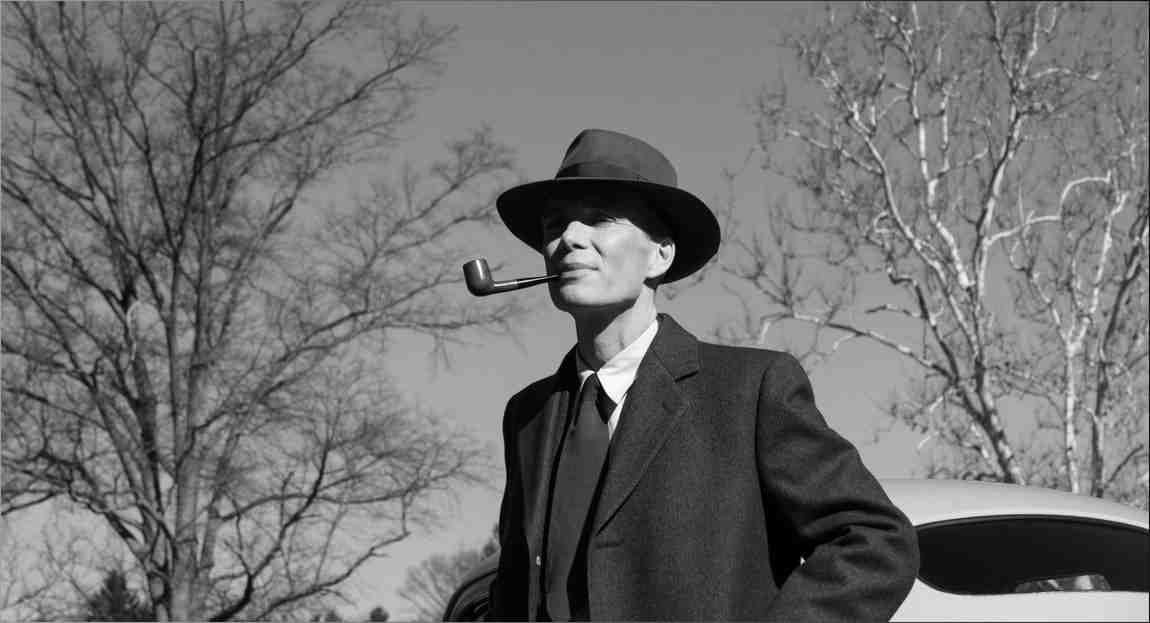
Cillian Murphy as Oppenheimer
Obviously, Nolan does not want to use a scripted way to popularize science for the audience. This film uses two narrative lines of "fusion" and "fission" to focus on two important hearings in Oppenheimer's life, interspersed with all kinds of dazzling retrospectives and details, not only to show the inner contradictions of this scientist , but also to express the fragility, hesitation and limitations of human beings as the masters of the world.
A small episode at the beginning sets the tone for the entire movie - Oppenheimer obviously respects and loves his mentor, but he wants to poison him. After he wakes up in time, he is busy making up for his mistakes. Rather than saying that this is a character flaw of Oppenheimer himself, it is better to say that this is the eternal dilemma that human beings cannot escape from - human beings always tirelessly pursue greatness, but they cannot always remain rational and restrained.

"Oppenheimer" stills
The birth of the atomic bomb, a deadly weapon capable of destroying the world, is the most vivid metaphor of the human predicament. Oppenheimer once explained the design of the atomic bomb as pure "academic research", but this was just his pretense - the ambition to reach the pinnacle of science was the real motivation that drove him to accept the Manhattan Project. When the atomic bomb was put into actual combat and caused heavy casualties, Oppenheimer felt anxious about what he had done, and even questioned the subsequent hydrogen bomb plan. All this is both what Robert Downey Jr.'s politician Strauss calls "hypocrisy" and what Emily Blunt's wife Katie calls "cowardice."
But it is such a character who is sometimes arrogant, sometimes upright, sometimes romantic, and sometimes affectionate, but he has completely changed the style of human war, and even completely changed the future destiny of mankind. What Nolan wants to express through the movie is not only respect and praise for the scientist, but also express the worries about the uncertainty of the future of the world through the fragments of his life.
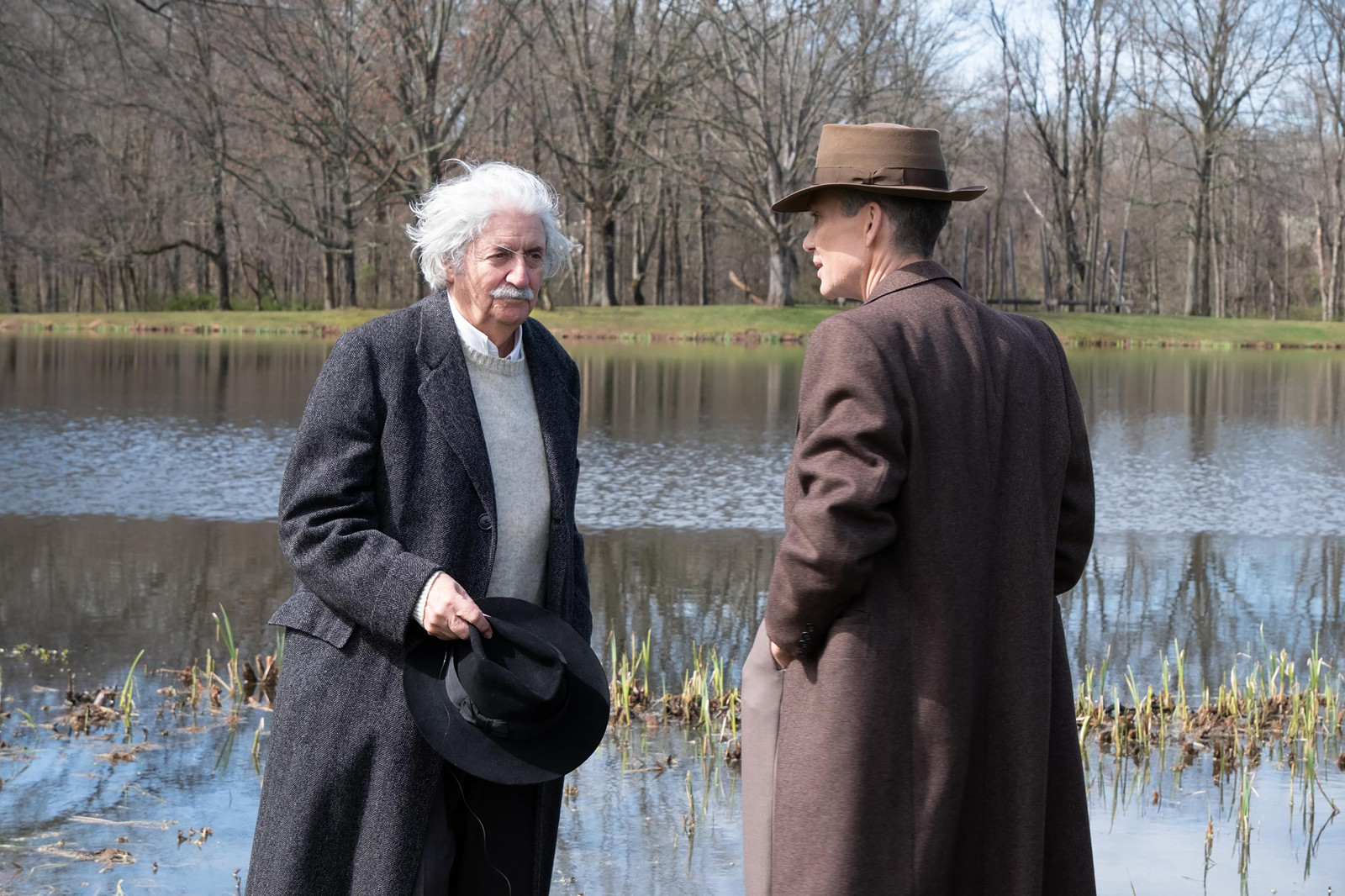
"Mr. Lawrence" Tom Conti (left) plays Einstein
This worry is most vividly expressed at the end of the movie - when the politician Strauss is worried about whether scientists despise him, Einstein and Oppenheimer explore what the rapid progress of scientific research means to the human world. . In other words, if most people, like politicians, just focus on immediate interests, it is likely to lead the world astray. Oppenheimer's fantasy of the end of the world is the reminder and revelation that Nolan brings to all audiences.
However, whether Nolan's good intentions can be accepted by audiences, especially Chinese audiences, is another matter. In fact, since the last "Tenet", Nolan's dazzling skills have reached the point of "crazy". This time, the switching back and forth between the two narrative lines has no markings of time and place at all. If the audience's attention is slightly unfocused, it is very likely that they will not be able to keep up with the rhythm at all (although this time Nolan's non-linear The narrative isn't that difficult to understand). The cannon-like dense dialogue may bring sufficient information, or it may cause the audience to be exhausted. Therefore, it is hard to say what the box office performance of this film will be in the Chinese market.
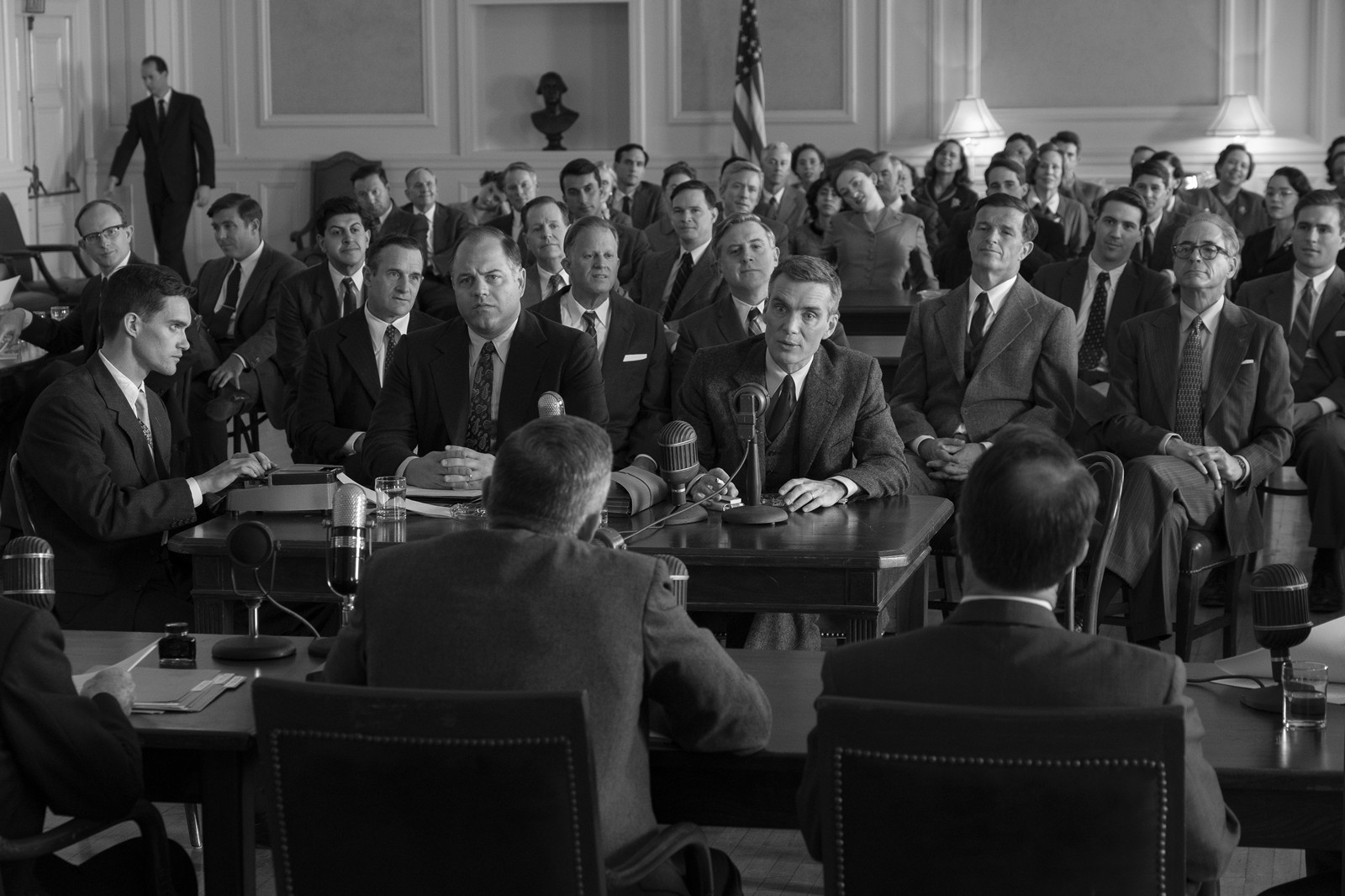
"Oppenheimer" stills
On the other hand, "Oppenheimer" also exposed a major flaw of Nolan's, which is that he is not good at shaping characters. The protagonist Oppenheimer was very busy researching, struggling, flirting, guilt, and anxiety in 3 hours, but so many fragmented plots failed to be organically combined. For example, what did Oppenheimer's relationships with his wives and lovers mean to him? Apart from showing Oppenheimer's vulnerability and his wife's jealousy during the hearings, they don't give us a more three-dimensional, richer character. Rather, Oppenheimer has once again become a Nolan-style protagonist, that is, a highly symbolic and conceptual character who needs to complete the task of expressing the director's ideas and thoughts rather than a living "person".
Although Nolan has repeatedly emphasized that the audience does not need to do their homework before watching the movie, there are so many characters in the film that the audience may not be able to figure out who the scientists who appear are after watching the entire movie. Who is it (it’s not that the audience is blind, it’s that he really has no distinctive character traits). This also shows from another side that from "Inception" to "Batman" and later "Tenet", Nolan is very good at industrial production, but he has never been good at exploring and portraying human nature (this is "Ad Astra" The plot of using love to save the universe has always been criticized by movie fans).
While the author was watching the movie, a male audience member in the front row was busy educating his girlfriend about the characters appearing on the big screen. He spoke very quietly, but also very exhausted. This scene reminded me of the recent satire on patriarchy in "Barbie."

"Oppenheimer" stills
Unfortunately, Nolan's movie seems to confirm this point invisibly - before the atomic bomb experiment began, Groves, played by Matt Damon, said a joke to Oppenheimer: Try to Don't blow up our world. The camera constantly shows Oppenheimer's facial expressions, from melancholy to anxiety, from deep eyes to frowning brows, from the cigarette butt in his mouth to the lonely back, reminding us all the time that the future of the world is in our hands. in the hands of this man.
But when you think about it carefully, this suggestion makes people very uncomfortable. Politicians cannot understand the exchange between Oppenheimer and Einstein, as if ordinary people are not on the same level as great scientists at all - this is undoubtedly an elitist ideology. The most vivid embodiment. While emphasizing fraternity and cooperation, while at the same time having a deep distrust of the public, this rift makes "Oppenheimer"'s reflection on the contemporary world far less profound than "Barbie". If "Oppenheimer" can point out, like the "Dune" series, that it is always very dangerous to leave the fate of the world to the so-called "chosen people" like Oppenheimer, then this film may be able to do more. Go up a floor.
In this regard, Nolan and Oppenheimer also have a certain character isomorphism - they do not need to be "made into gods", but should be understood sympathetically. Perhaps Nolan is still far from being a "master" now, but he has already achieved great success in business. He did not choose to follow the rules and follow the rules. Instead, he bravely chose a subject that was not flattering, without any compromise or speculation. Therefore, we can say that Nolan’s pursuit and exploration of film art is as sincere and great as the scientist Oppenheimer, and his works are still worth looking forward to.

